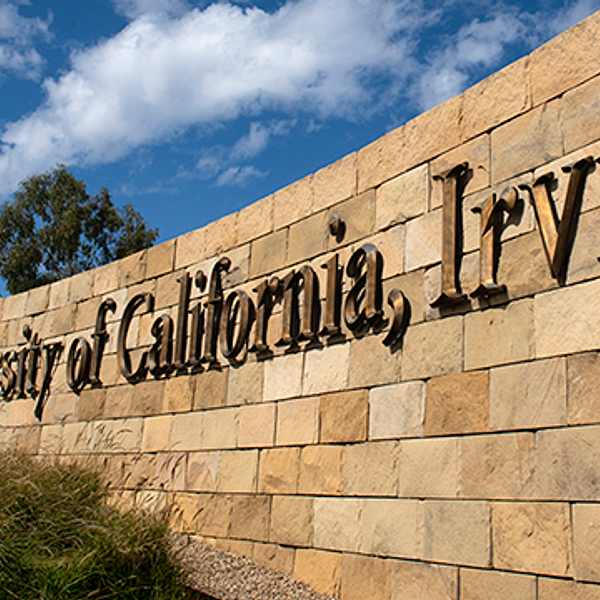
8th June 2024
Bilingualism Matters in California: A Mini Conference on June 8, 2024 ONLINE
In Southern California, many languages and dialects are in the air. They are spoken on their own and in mixtures in every possible form that might be imagined. Despite the naturalness of language mixing, there is a mythology that switching from one language to the other or allowing all known languages to enter into discourse is marked and not the norm. In this mini-conference, we hope to begin to dispel this mythology by coming together to discuss the varied contexts in which languages are mixed.
9:00 AM: Introduction and overview: Judith Kroll and Elizabeth Peña, Bilingualism Matters in California, University of California, Irvine
9:10 AM: Keynote Presentation: Jeff MacSwan, University of Maryland, "A multilingual perspective on translanguaging"
Translanguaging has emerged as a new construct within bilingual education which gives voice to pluralist language ideologies, and values bilingualism as a resource for teaching and learning. In this talk, Jeff MacSwan presents a description of the history of translanguaging theory from early translanguaging theory, grounded in empirical research on codeswitching and language mixing, to late translanguaging theory, which changed under the influence of a postmodernist approach to language policy known as deconstructivism. MacSwan presents a multilingual perspective on translanguaging, compatible with early translanguaging theory but not late translanguaging theory, exploring its consequences for curriculum, instruction, and education policy.
10:00 AM: 10-minute break
10:10 AM: Julie Washington, University of California, Irvine "Integrating AAE and Reading"
Teaching reading to children who speak language varieties that differ in important ways from the structure of print adds an additional layer of complexity not only to reading acquisition, but also to reading instruction. Language variation is particularly important to consider for children who are dense users of cultural and/or regional dialects of English. For African American children, high dialect use suggests that integration of dialect into the teaching of reading is critical for development of mental representations needed to facilitate development of strong, automatic reading abilities. This presentation addresses the use of dialect in African American children and the importance of considering translanguaging instructional approaches to improve outcomes for students who present strong, within language variation.
10:30 AM: Anne Beatty Martinez, University of California, San Diego "Switching between Languages and Disciplines: A Transdisciplinary approach to codeswitching"
Research on codeswitching has been approached from a variety of different disciplines, each with its own history and breadth of conceptual and methodological traditions. While educators, psychologists, sociolinguists, and cognitive scientists may ask different questions and prioritize different sources of information, they share more in common than not. In this talk, I argue that we need new ways of building bridges across these divides and contextualizing research findings to better represent the lived experiences of people. 10:50 AM: Mira Goral, Lehman College, City University of New York Using a translanguaging framework in clinical context: An example from aphasia Language abilities of multilingual people with acquired language impairments (aphasia) are typically examined separately for each language. But many multilingual individuals with aphasia, like their counterparts without aphasia, mix their languages regularly when communicating with other speakers who share their languages. We explore a novel approach to a) scoring single-language testing sessions, and b) administering multilingual testing, of language production in multilingual people with aphasia. Preliminary work suggests that approaching language assessment in multilingual people with aphasia within a multilingual/translanguaging framework can benefit the individuals and reflect a more accurate picture of their communication abilities.
11:10 AM: Zenaida Aguirre-Munoz, University of California, Merced Laura Tellez Peña, Campus Park Elementary School, Livingston Unified School District "The Cognitive Power of Language Integration: Translanguaging in Educational Practice"
Translanguaging is recognized as a pivotal pedagogical strategy that transcends traditional linguistic boundaries and hierarchical social constructs. It posits language as a dynamic, unified process rather than a collection of discrete, isolated codes. Within discipline-based frameworks, translanguaging is seen not just as a means to facilitate comprehension or as a tool for bilingual education, but as an integral component of deep content learning, especially in bilingual environments. This broader perspective extends the theoretical foundation of translanguaging from mere language learning to full content mastery, proposing that translanguaging enhances learning by seamlessly integrating language and content acquisition. Consequently, translanguaging should be a central element in bilingual content learning and disciplinary literacy practices. It also plays a crucial role in effective bridging strategies that heighten engagement and content learning in bilingual contexts. This presentation will explore an approach that merges key theoretical insights from translanguaging research while maintaining focus on the role of language in concept learning. Importantly, we demonstrate how named languages serve as important cognitive tools for deeper content learning especially when translanguaging practices are strategically promoted through inclusive and engaging disciplinary practices. Insights from collaborations with elementary school teachers will be presented.
11:40 AM: Karen Emmorey, San Diego State University, "Bimodal bilingualism and language control:
Bimodal bilinguals, fluent in a signed and a spoken language, exhibit a unique form of bilingualism because their two languages access distinct sensory-motor systems for comprehension (vision and audition) and production (the hands and the vocal articulators). When a bilingual’s languages are both spoken, the two languages compete for articulation (only one language can be spoken at a time) and for perception (both languages are heard). Bimodal bilinguals also have the unique ability to code-blend (rather than code-switch), i.e., they can produce (and perceive) a sign and a word simultaneously. This talk will briefly highlight what bimodal bilinguals can tell us about bilingual language processing and language control.
12:00 PM: Very Brief Wrap-up Discussion!
Note that this mini-conference sponsored by Bilingualism Matters in California will precede the Fifteenth Heritage Language Research Institute that will be held at UCI from June 10-June 13:
Full programme details can be found here: https://nhlrc.ucla.edu/nhlrc/event/16273